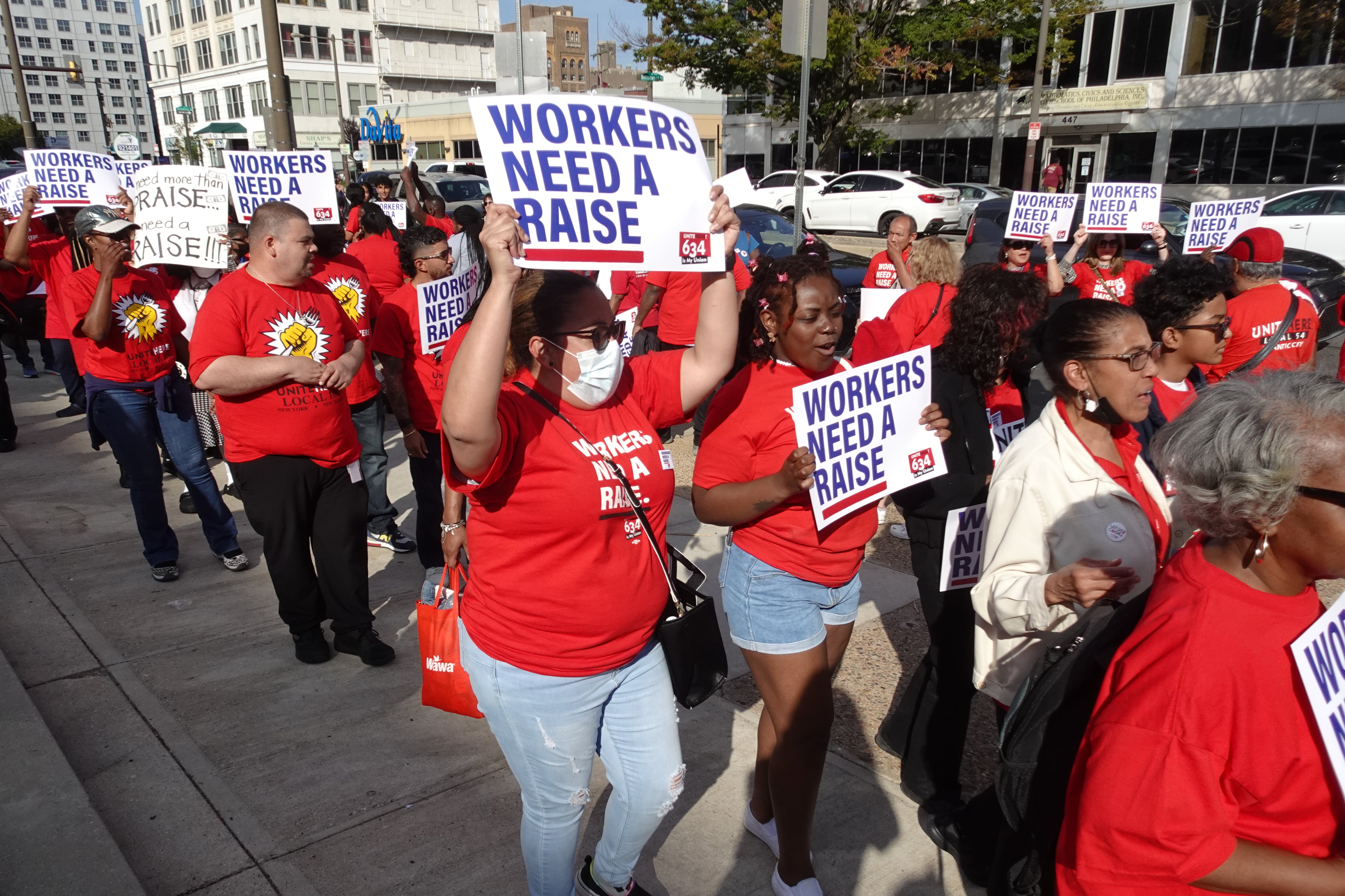Sign up for Chalkbeat Philadelphia’s free newsletter to keep up with the city’s public school system.
Philadelphia school food service workers and climate staff say they are “sick and tired” of being underpaid and overworked and are threatening to strike if they aren’t granted a raise.
“We are sick and tired of the unfair treatment. We are sick and tired out of disrespect,” Kiara Coleman, lead organizer of the Unite Here Local 634 union, told a crowd outside of the school district’s headquarters on Thursday during a Board of Education meeting. “Today we are showing the district that we are ready. We’re willing to stand up and fight for what we deserve. We’re going to continue to put them on notice until they get the message.”
At the rally, dozens of members of the union — which represents 1,900 food service and student climate staff employees in the district — demanded higher wages and more flexibility in their work schedules, among other quality of life improvements.
“We are feeding all the kids in Philadelphia and cannot feed our own families,” said Tanya Edmonds, a food service worker at Henry H. Houston Elementary School.
In a Thursday statement, the school district said it “recognizes the central roles” of the employees, and said it is “confident” it can reach an agreement with the union.
The group’s collective bargaining agreement with the school district expires on Sept. 30. Earlier this month, the union’s members “unanimously authorized” a strike to be called “if and when” union leadership “deems it appropriate.” The workers are not yet on strike.
A work stoppage by the union members could throw Philadelphia’s schools into disarray. Among other things, climate and cafeteria staff maintain close relationships with students and provide some of the most impactful care for kids struggling with food insecurity and mental health challenges.
“We are like mothers and fathers to the children while they’re here,” a union statement from Sept. 9 said. “We see first-hand what kids deal with at home and in their communities. … We wipe noses and give hugs. We have listening ears when they need someone to talk to.”
Cafeteria workers and climate staff are among the lowest-paid school employees, according to Coleman. Union representatives said most of their members are paid $15.50 an hour.
According to hiring, resignation, and termination data posted by the school board and analyzed by Chalkbeat, food service workers and school climate staff make up a large portion of the board-approved terminations and resignations in the district.
In district employment reports covering a period from September 2022 to June 2023, the district fired 19 climate workers and 4 food service workers. Those firings made up 34% of all terminations in the district. In that same time period, 194 climate workers and 91 food service workers resigned, making up 20% of the 1,394 district workers who resigned.
Several elected officials attended Thursday’s union rally, including state Sen. Nikil Saval, state Reps. Liz Fiedler and Jordan Harris, and City Councilmember Kendra Brooks. They urged the district to increase the workers’ wages.
“We’re going to stand with you as long as it takes to not just give you praise, but to get you that damn raise,” Harris said.
Correction: Sept. 22, 2023: A previous version of this story included comments from Board of Education Vice President Mallory Fix-Lopez that were not directed at the union’s Thursday rally, but at an earlier rally in Harrisburg about Philadelphia school funding.
Carly Sitrin is the bureau chief for Chalkbeat Philadelphia. Contact Carly at csitrin@chalkbeat.org.






